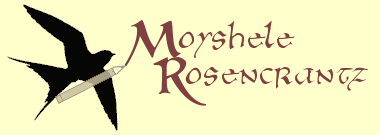An interview recorded by my cousin, which I then transcribed and translated from Hebrew
Lova: Of course I had prepared myself some food in advance. I calculated that it would take me about twelve days. So I prepared all kinds of food, and put it all in a backpack I had made out of a big sugar sack, and I had cut out straps from the sack so I could wear it on my shoulders. I started walking, and walked and walked for three days. After three days, a policeman caught me, and brought me to see the officer. And this officer – well, you see, while I was working I had earned some money, and with this money I had bought myself and extra pair of shoes, and an extra pair of pants, and an extra shirt. Because if you leave with only one pair of pants, and one pair of shoes, then everything gets torn along the way. Not so good. So I took an extra pair of each.
When the policeman brought me to his officer, in the village, the officer asked, me “Who are you? Where are you from?”
So I said I was from Sebinkarahisar, and I was looking for work in Malatya. Malatya was a city where they were laying down railway tracks. I had heard about this, and told them I was going to Malatya.
“Nu,” he says, “what have you got?” So he checked. He saw the pants, and put one pair aside. The shirts – one aside. Everything I had two of, he took one of them. Then, he accompanied me out of the station. “Do you have any money?” he asked. “I have a little,” I answered. But he didn’t take my money. He came out with me and he said, “Listen, if you want to avoid the karakol, the police, here’s the way you need to go to get to Malatya.”
 |
| Old traditional houses in Yeni Malatya |
When I finally reached Malatya, the old one that is, I was very, very tired. I lay down and slept for 24 hours under a shelter, where the muleteers would come, leading their mules all laden with wares to the mountains. They would stand there under the shelter. It was a kind of a station for muleteers. And from there I was planning on going on to Urfa (nowadays Sanli Urfa), on the other side of the Euphrates. According to my plan. My first plan wasn’t to go straight to Syria, but to cross the Euphrates over here.
But I didn’t manage to get there, because there was a kind of a bridge for crossing over to the other side. Not a bridge, but rather a platform, and people and horses would climb on it, and a rafter would row them over to the other side, where they would get off.
 |
| Ferry across Euphrates, men loading horses onto ferry, Izoglu Mound, not far from Malatya, Gertrude Bell, June 1909 (the accompanying text can be found here) |
Meanwhile a policeman arrived, a policeman from some nearby village, and he asks me, “Vasika va? Vasika va?” Vasika, meaning your identity papers. “Do you have them?” I said, “Of course I do.” “Where?” he asks. “Where? At home.” “What do you mean at home?”
“What,” I say, “am I majnoun? Am I crazy? You want me to take them everywhere with me and lose them along the way? I left them at home.”
So he says, “Come to the karakol.” And he brought me to the karakol. And from there, they brought me to new Malatya, to Yeni-Malatya.
In Yeni-Malatya I reported to a senior officer, and he asked me “where from?” “where to?” and “why?” So I told him why I ran away from Russia, and that I wanted to go to Israel. And they locked me inside a sort of a shed in the garden, along with some others. Anybody they arrested because of something or other, they’d put him into the shed. It wasn’t a jail. It was just an administrative thing. Maybe after a trial, they’d send you to a real jail, but this was an administrative thing, you had to have a trial first.
So I stayed there for a whole month, in Yeni-Malatya. Why? Because when I spoke to the officer he told me his story as well. He had been a soldier in the War of 1914-18, and had been captured by the Russians. And he ran away from the prison camp. It took him three years to get back home, through Persia, and all kinds of places, and all sorts of trouble. So he sympathised with my situation, and took a liking to me. Every Friday was a holiday there, they didn’t work, just like the Shabat for us. He would take me home with him, and order food, and tell me all kinds of stories. And then, in the evening, he would take me back to the shed.
 |
| Malatya, 1933 |
 |
| Malatya, 1930, in front of the new mosque |
Continued in part 6...

No comments:
Post a Comment